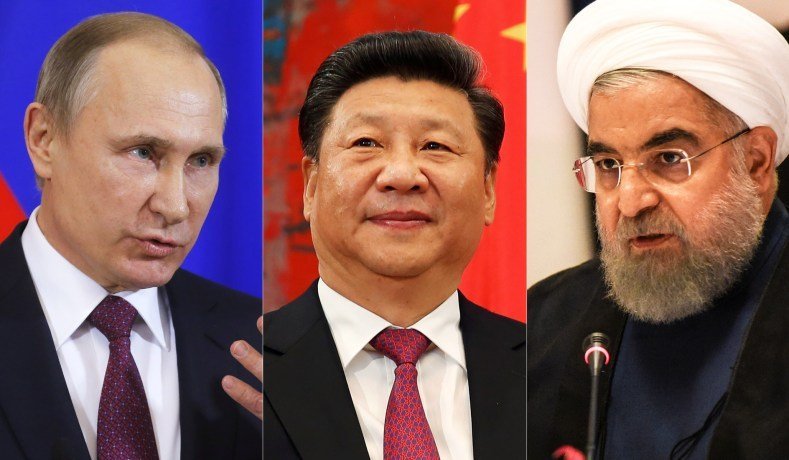Even in the midst of a trade conflict with China, and a plan to send tens of thousands of troops to Iran, President Trump continues his strange diplomatic dance with Russia, as his Secretary of State prepares to meet personally with Vladimir Putin.
Pompeo said today the discussions were intended to improve ties between the two nations, to “stabilize the relationship,” and to find issues where the two powers had “overlapping interests.”
Trump has avoided one-on-one clashes with Putin, most recently when he failed to tell the Russian leader during their phone call that he must not interfere in the 2020 elections.
That wasn’t out of character.
Trump’s habit has been to refuse to condemn Putin for election interference, most famously at a joint press conference in Helsinki last summer.
It was Russia, not China or Iran, who was caught interfering in America’s last presidential election, an act that many view as a cyber war launched on the United States.
So it is a bit odd that while diplomacy with Russia is happening, Trump is pushing both China and Iran to the brink.
The stock market is already taking a beating as China retaliates to Trump’s tariff hikes on $200 billion in Chinese goods, and analysts are warning of a possible global recession if he follows through with his threat to extend them to all Chinese imports.
Meanwhile, Trump’s warnings that Iran will “suffer greatly” if “they do anything” to provoke the U.S., paired with bellicose statements from senior officials, are deepening fears of another war in the Middle East.
Even short of war, Trump’s pressure campaign will likely mean higher oil prices, more suffering for the Iranian people and the collapse of the 2015 nuclear deal.
Last month, as the U.S. stepped up its attempts to block all Iranian oil exports, Iran threatened to close the Strait of Hormuz, the world’s most important oil chokepoint.
Trump denied a report from the New York Times that his top national security aides discussed a plan to send up to 120,000 troops to the Middle East in case of a fallout with Iran, adding that if they were planning to, “we’d send a hell of a lot more troops than that.”
Listening to Trump, on Russia, he sounds like a heretic inside his own government: the lone official prepared to accept that Putin is trustworthy and sincere.
Nikki Haley, the president’s former ambassador to the United Nations, last week called Putin an enemy.
National Security Adviser John Bolton has labeled Putin a liar.
Trump’s favorite senator Lindsey Graham has warned him, “Putin’s not your friend.”
But Trump seems hellbent on turning the former KGB operative into a personal friend.
In a phone call earlier this month, the pair amiably chewed over the finding from Special Counsel Robert Mueller’s report that the Trump campaign didn’t conspire with Russia during the 2016 election.
In Trump’s telling, Putin “smiled” while confiding that the inquiry “started off as a mountain and it ended up being a mouse”—just a couple of intimates savoring Trump’s vindication.
It’s a mystery that has mushroomed since the 2016 campaign: What is the root of Trump’s deference toward Putin?
Does the Russian leader have some sort of an unseen hold over the 45th president?
Trump’s tone is inescapable, and it continues to feed doubts about his commitment to hold Russia to account.
